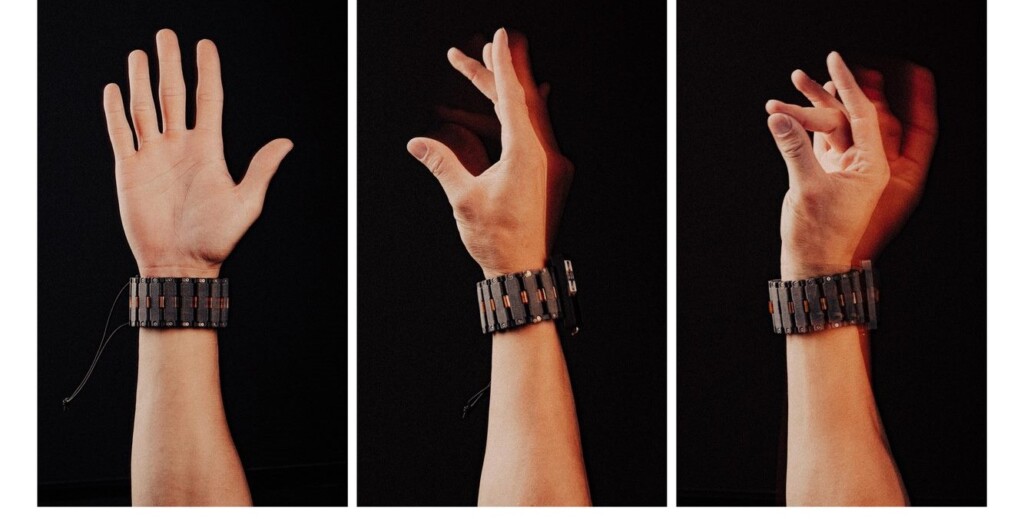
Meta’s Neuromotor Interface – credit, Reality Labs, via Springer PressA very sci-fi invention has been introduced by engineers from Facebook’s parent company that translates hand gestures into computer actions.This includes fine motor movements like dotting a lowercase i, and translating handwriting into computer text is something the interface is particularly good at.Designed inside Meta’s Reality Labs, it’s one of the first major offerings from the in-house moonshot department since the collapse of the company’s “Metaverse” concept which was once expected to “define the future of social connection” according to CEO Mark Zuckerberg, who renamed his company in its honor.The Metaverse ended up being less of a future-defining technology and more like a damp squib, with the Reality Labs division of Meta losing $14 billion in 2022 and $15 billion in 2023.Reality Labs was on the chopping block during Meta’s Year of Efficiency, with perhaps as many as 10,000 layoffs taking place in advance of a direction shift to what almost anyone would admit is a more exciting and marketable business direction: stuff that looks like it’s from Star Trek.The device can translate the electrical signals generated by muscle movements at the wrist into computer commands without the need for personalized calibration or invasive procedures. The bracelet slips...

